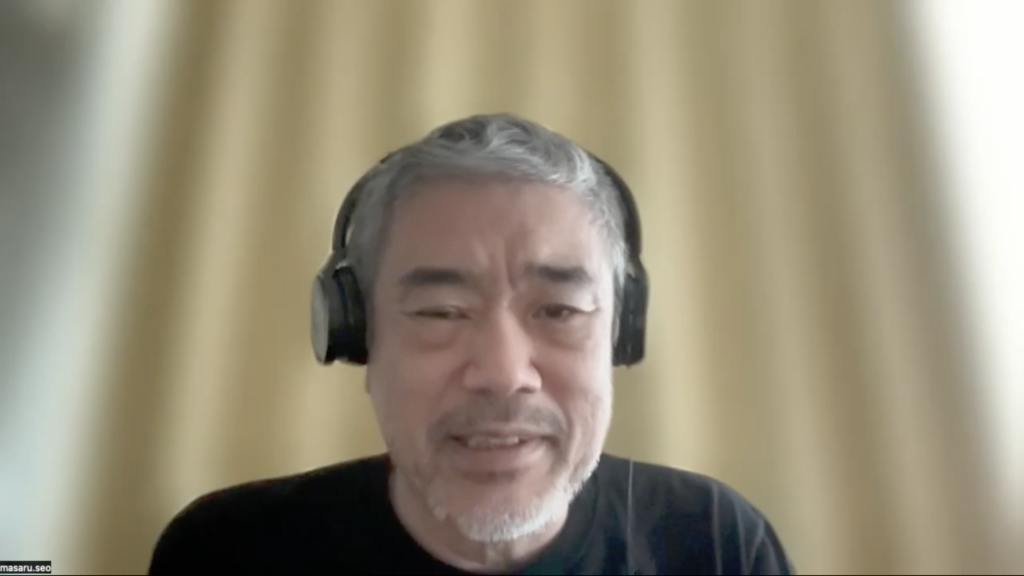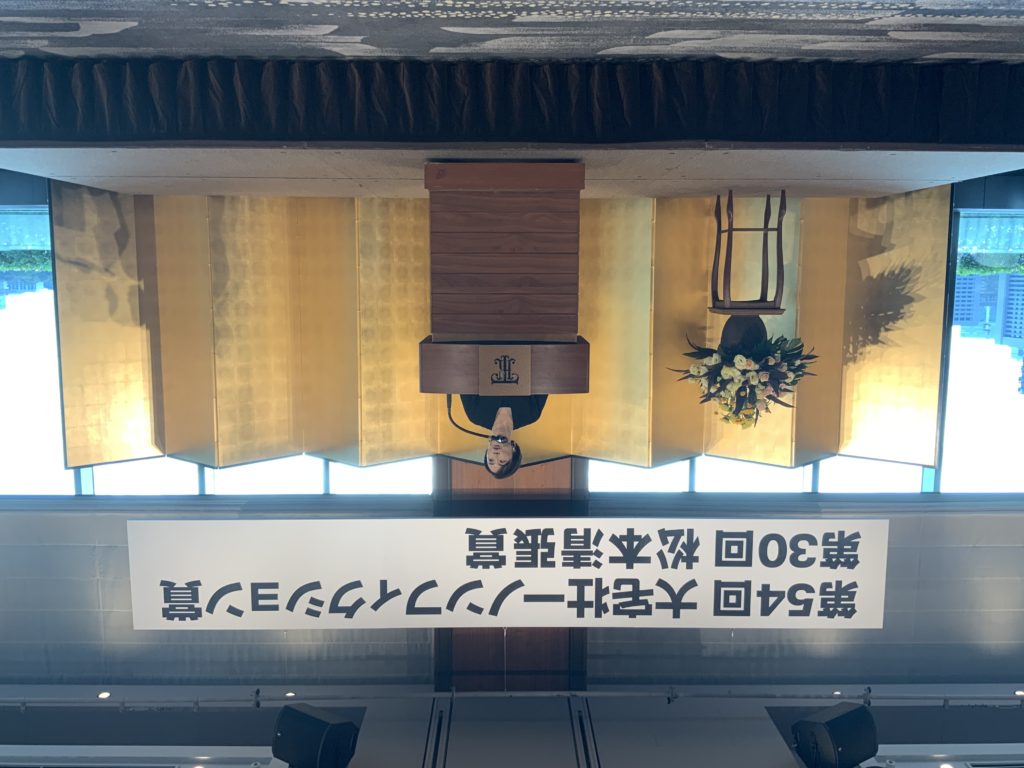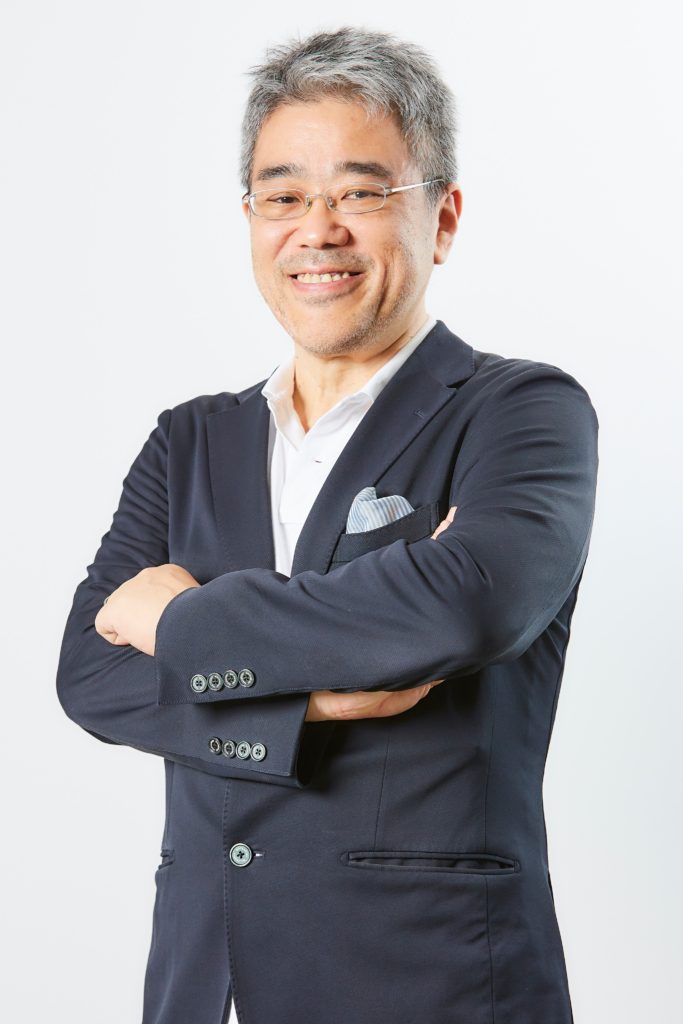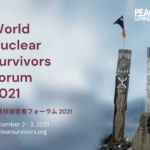[Interview] The Importance of Information in Peace and the Role of Information Companies
SlowNews

The Hiroshima Business Forum for Global Peace is a platform for multifaceted discussions on the relationship between businesses and how they contribute to peace. Its 8th session was last April 2023, entitled “International Society/Economy and Contribution of Business to Peace in Wake of Invasion of Ukraine.” The session focused on realizing a truly peaceful and sustainable international society. Let us hear more about the importance of information in peace and the role of information companies from Seo Masaru, a speaker of the Forum’s first session and the director of SlowNews Co., Ltd.
● Business Description and Thoughts on Business
Journalism is essential to developing a healthy democracy, and investigative journalism has played an especially crucial role. Investigative journalists are those who perform detailed research to uncover the truth and report responsible, objective information. In other words, investigative journalism gives citizens access to appropriate information, allowing them to make decisions based on their own thinking and political stance. It also highlights social issues and misconduct, stimulating public interest to raise social awareness and encouraging people to address problems and make reforms.
However, these very characteristics also make publishing articles costly and time-consuming. As digitization changes the media’s business model, the burden is becoming more and more taxing and unsustainable. In response, we established our company to pass investigative reporting on to the next generation.
Specifically, we are working towards creating an ecosystem for investigative reporting. Our activities include nurturing investigative journalists, publishing scoops grounded in detailed research, and distributing actual high-quality information acquired from newspapers, TV, magazines, and other reliable sources.
The website SlowNews is one of our methods to achieve this goal. SlowNews supports investigative journalists and freelance writers by helping with information gathering costs and distributing their content. In other words, we are running a community of investigative journalists and their supporters. Nearly 20 books have been made from SlowNews’s serializations. One of them is nonfiction writer Izawa Rie’s “Kuroi Umi Fune wa Totsuzen, Shinkai e Kieta,” which won the 2023 Oya Soichi Nonfiction Award, Kodansha Honda Yasuhara Nonfiction Award and the Japan Essayist Club Award.

SlowNews serialization “Kuroi Umi Fune wa Totsuzen” author Izawa Rie
at the award ceremony for the Oya Soichi Nonfiction Award
We use the Open Data Watch approach when gathering material, a method that matches our digital society. This approach analyzes disclosed public information and investigates what the government wants or does not want to reveal. We teach this method to the journalists we train and share our expertise in disaster reporting, ensuring they know what to cover, how to convey it, and how to help the victims. Until now, information-gathering techniques have been exclusive to their respective media outlets. However, the future demands otherwise. Although this goes without saying, proper information gathering helps avoid unwarranted human rights violations and defamation charges. However, there are media outlets out there that crudely produce gossip articles written simply by transcribing statements from TV programs. Due to the nature of the Internet, we are flooded with “fast news,” which prioritizes speed and stimulates only anger and sadness. In contrast, our company, SlowNews, operates on the idea of taking all the necessary time to properly report and disseminate information, aiming to change the current business structure.
● Issues and Solutions on “The Importance of Information in Peace and the Role of Information Companies”
In a world of fast news, we are plagued by an even graver problem—fake news, calling for the need to improve the reader’s information literacy (the ability to utilize the various information the world has to offer appropriately).
The advent of the Internet has dramatically changed how information is communicated and conveyed. Although the younger generation can be educated to process and utilize information properly in their schools, the same cannot be said for the older generation. Being away from such an environment makes it difficult to improve their information literacy. A certain study found that the older generation is likelier to believe in biased theories, such as conspiracy theories circulating on the Internet. Nowadays, generative AI has made it easy to forge images and audio, requiring better information literacy to avoid falling victim to fake news. To this end, society needs more support from the government and other organizations.
Social responsibility and corporate ethics are critical to information-disseminating platforms. It is important that the platform promises to guarantee users information and ethical algorithms for appropriately displaying content. Even the press has recently suffered from alarming terms, such as “lamestream criticism,” indicating low trust in the media. Information used to be one-way, but nowadays, the media itself is checked by its audience. We must listen to criticism sincerely and continuously strive to improve.
A lack of transparency in the government’s disclosed information breeds fake news and conspiracy theories. The country and its authorities must be transparent in disclosing information, treating information as records open for later verification. We have found considerable cases of information manipulation in the Russo-Ukrainian War. As with propaganda (publicity about a particular principle or ideology), there are three types of fake news peddlers: first are people profiting from misinformation; second are those with good intentions or find the news they are sharing interesting; and third are parties driven by political agendas or seek to disrupt society.
As the world is now, we must all raise our information literacy and, most importantly, recognize that we, too, are also susceptible to fake news. Believing that one is too literate to be deceived is dangerous. People must acknowledge themselves as deceivable, take time to discern the truth, and not jump to conclusions when encountering information. The rigidity of labeling one side as evil and the other side as righteous and the mindset of devaluing others simply because they have been “defeated in an argument” turns us away from the world’s complexity and strays us from the truth. Even if some people get fooled by fake news, society must have enough leeway to absorb it as noise. Only then will it be truly resistant to fake news.
● Expectations for Hiroshima
The G7 Hiroshima Summit, held in May 2023, became an event of great historical significance, with the world leaders visiting the Hiroshima Peace Memorial Museum. I am sure they all felt something and gained some meaningful insight. And I am sure spreading Hiroshima’s message worldwide had a tremendous influence and social impact. I felt that Hiroshima’s climate and the thoughts and ideas of its people contributed a lot to the realization and success of the summit. For example, if the people of Hiroshima had still held a deep grudge over the past, they would never have been able to welcome the leaders of other countries as they did. I believe their energy is powered by their positive attitude and strong desire to build a peaceful future while inheriting the horrible memories of the war. The inscription of the Cenotaph for the Atomic Bomb Victims in Peace Memorial Park states, “Let all the souls here rest in peace, for we shall not repeat the evil.” Some criticize it for not specifying who it is meant for, but its ambiguity is precisely why everyone can take it as their own.
From the very beginning, we have been focusing on the Hiroshima Business Forum for Global Peace as a very realistic and challenging initiative to discuss the relationship between businesses and how peace should be. Although it is important to pass on our thoughts, it is also crucial to make it sustainable from a business perspective. The business operator’s commitment to valuing peace as a stakeholder and its pursuit of a sustainable society will lead to true peace. The problems of other countries also directly impact our lives, not to mention the soaring prices of commodities due to the Russo-Ukrainian War. I hope the Hiroshima Business Forum for Global Peace continues for many years to come. I also hope that Hiroshima’s history, its people’s feelings (which I mentioned earlier), and its power for reconstruction become a powerful message to the younger generation.

SlowNews, Inc.
President & Representative Director
Seo Masaru
Tags associated with this article








